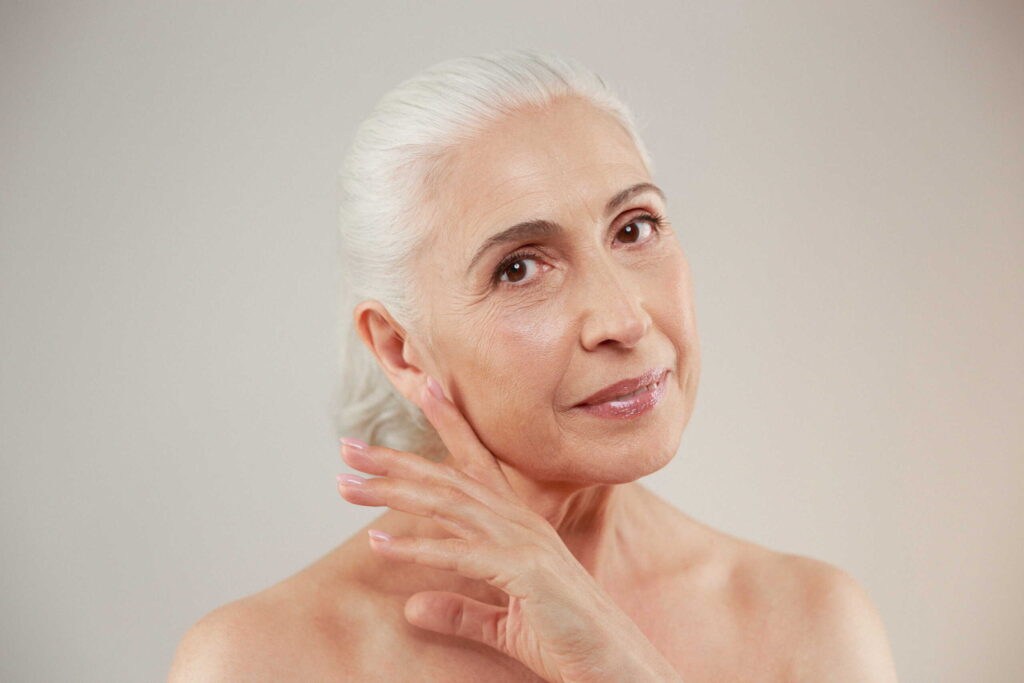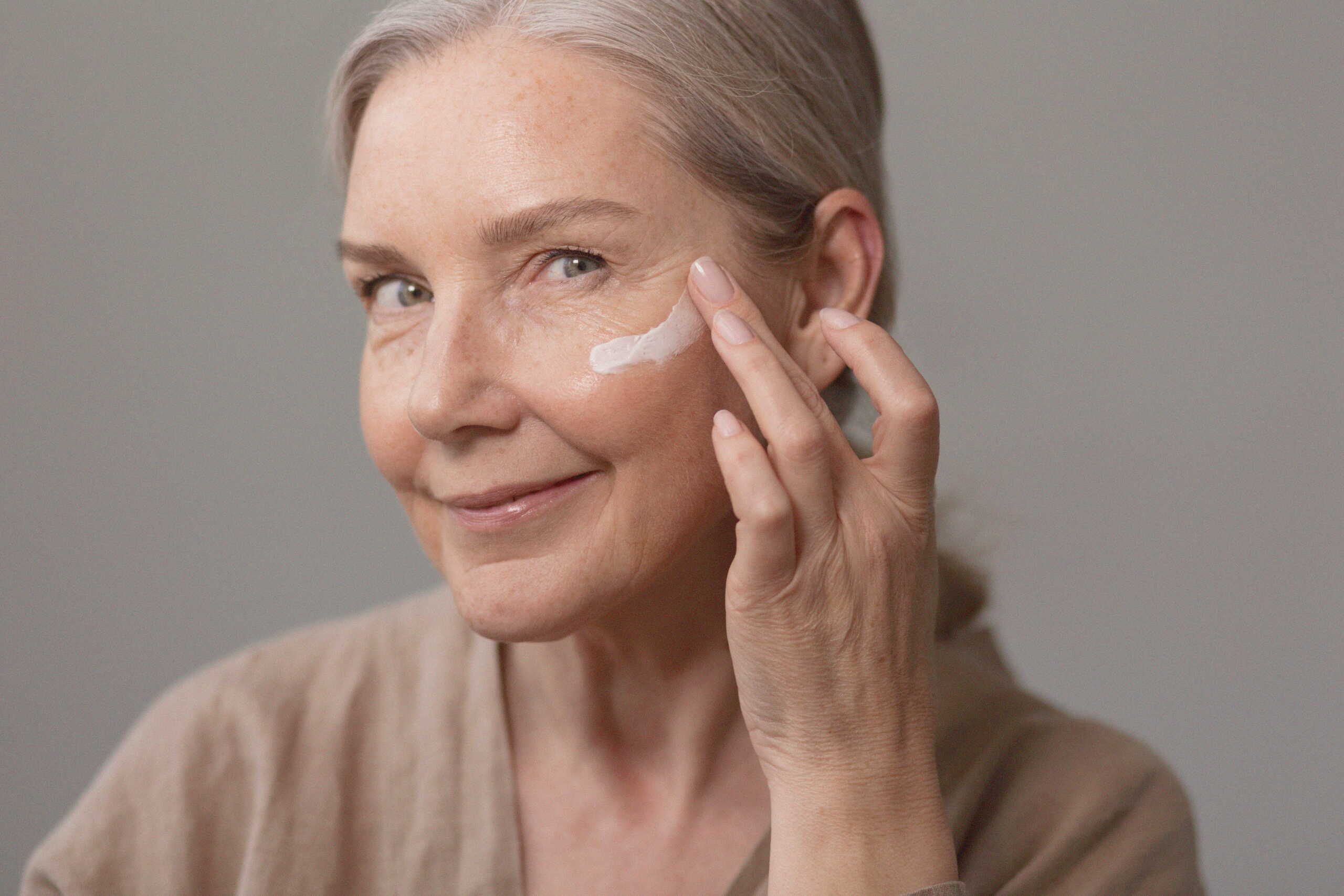As we age, our skin undergoes complex changes influenced by various factors, including genetics and our environment.
However, one factor that often goes unnoticed is the role of our diet in determining how our skin ages.
Skin aging can be classified into intrinsic and extrinsic processes, with external factors such as our diet having a considerable impact on the latter.
If you want to keep your skin looking young, it is essential to concentrate on vital nutrients and dietary approaches.

The Role of Antioxidants
Antioxidants are essential nutrients known to combat oxidative stress, a leading cause of skin aging.
Vitamins E, C, and A, carotenoids, tocopherols, and flavonoids are some of the most effective antioxidants that can help neutralize harmful molecules generated by factors like UV radiation, protecting skin cells from damage and premature aging.
Incorporating antioxidant-rich foods and supplements into a healthy diet can help promote healthy skin and delay the signs of aging.
Essential Nutrients for Skin Health
Vitamin A: Critical for skin cell turnover, vitamin A deficiency can lead to dry, fragile skin prone to wrinkles.
Topical retinoid treatments have shown efficacy in combating UV-induced collagen breakdown and reducing signs of aging.
Vitamin C: Essential for collagen synthesis, vitamin C is a potent antioxidant found abundantly in fruits and vegetables.
It supports skin health by promoting collagen production and defending against oxidative stress.
Vitamin E: Known for its antioxidant properties, vitamin E helps reduce the appearance of age spots, wrinkles, and stretch marks.
Dietary sources include nuts, seeds, and leafy greens, while topical application can further enhance skin health.

Lipids and Fatty Acids
Healthy fats, mainly monounsaturated and polyunsaturated fatty acids, protect the skin from oxidative damage and inflammation.
Olive oil, avocado, and fatty fish are rich sources of these beneficial fats, contributing to skin hydration and elasticity.
Hydration and Fluid Intake
Proper hydration is essential for maintaining skin moisture and elasticity.
Drinking adequate fluids throughout the day helps prevent skin dryness and promotes a healthy complexion.
However, excessive fluid intake before bedtime should be avoided to prevent skin puffiness.
Caloric Intake and Nutritional Balance
Calorie restriction without malnutrition has been linked to delayed aging in animal studies.
Consuming a balanced diet rich in essential nutrients supports skin health and may slow down the aging process.
Additionally, maintaining a healthy weight reduces the risk of age-related skin issues.
In conclusion, maintaining youthful skin is a common goal for many individuals, and the relationship between nutrition and skin aging has been the subject of numerous studies.
The importance of dietary interventions in promoting healthy skin cannot be underestimated.
A nutrient-rich diet rich in antioxidants, essential vitamins, healthy fats, hydration, and balanced nutrition can be an effective anti-aging strategy.
Although aging is inevitable, adopting a healthy diet can help mitigate the effects of extrinsic aging factors, promoting overall skin health and vitality.
Embracing these dietary principles can offer a practical approach to maintaining youthful skin and optimizing overall well-being throughout the aging process.
References
Disclaimer
- It is intended for general informational purposes only: The information provided on BioKissed’s website and app, including but not limited to business opportunities, nutrition tips, healthy lifestyle tips, healthy lifestyle practice articles, nourishing recipes, and wellness articles (hereinafter collectively referred to as « Content »), is intended for general informational purposes only. The Content is not intended to be a substitute for professional business advice, medical advice, diagnosis, or treatment.
- It is solely at your own risk: BioKissed does not recommend or endorse any specific tests, physicians, products, procedures, opinions, or other information that may be mentioned on the website or app. Reliance on any information provided by BioKissed, its employees, contracted writers, or others appearing on the website or app at the invitation of BioKissed is solely at your own risk.
- BioKissed does not endorse or approve any views in the Content: BioKissed does not guarantee the accuracy, completeness, or usefulness of any Content, nor does it endorse any views expressed within the Content. The inclusion of any Content on BioKissed’s website or app does not imply endorsement or approval of such Content.
- You voluntarily assume all such risks: Before participating in any challenge, making significant lifestyle modifications, altering your dietary practices, or engaging in any related activities, it is advisable to assess your personal health and fitness levels. BioKissed expressly disclaims responsibility for the substances individuals choose to consume, and the company is not liable for any consequences, including those related to food allergies, resulting from such choices. By choosing to participate in any challenge, you acknowledge and agree that any such activities carry inherent risks, and you voluntarily assume all such risks, even if they arise from the negligence of BioKissed, its affiliates, or its members.
- BioKissed and its content providers disclaim any responsibility or liability for consequences: BioKissed and its content providers assume no responsibility or liability for any consequence relating directly or indirectly to any action or inaction you take based on the information found on or through BioKissed’s website or app.
- Read more
